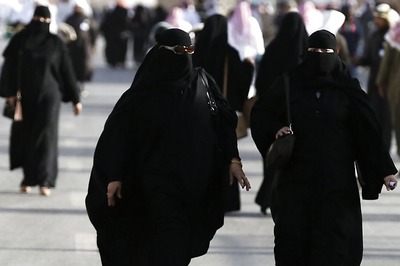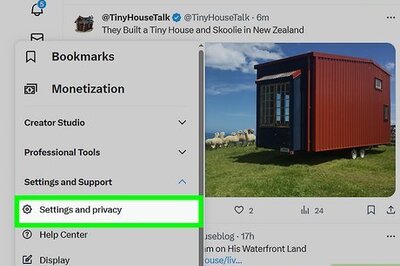
views
The government has allowed vaccination sessions at workplaces (both public and private), in a move seen as another forward step in the massive inoculation drive against Covid-19 in India. Here we answer all your questions on this development.
Am I eligible to get Covid vaccine in my office?
Yes, but only if you are above 45 years of age. From April 1, the government has allowed everyone born before January 1, 1977, to opt for the jab. The new notification by the health ministry, dated April 6, does not modify or alter that. In fact, it categorically says “employees of Work Place aged above 45 years or more will be eligible for vaccination at Work Place”.
Are relatives of employees who meet the age criteria allowed to take the jab at office sessions?
No. The notification says “no outsiders including eligible family members will be allowed for vaccination at ‘CVC (Covid Vaccination Centre) at Work Place’.”
Why has the government taken such a step?
According to the government, a “substantial proportion” of the population aged 45-59 (and in some cases up to 65 years) are in the organised sector, and are involved in formal occupation in government and private offices, or manufacturing and services. The move will benefit these people, who will not have to travel to traditional vaccination centres.
When will the office vaccination drive start?
Such centres may be launched across states/Union Territories from April 11. The government says it has asked state authorities to discuss the nitty-gritties with public and private sector employers and management, and prepare to launch the drive.
Will all offices have such centres?
No. Vaccination sessions will be conducted at workplaces having 100 or more willing and eligible beneficiaries, a criterion set to prevent vaccination wastage.
Will such vaccination centres in offices be safe?
Every such centre in government offices will be tagged to the nearest vaccination facility at a government hospital. Similarly, every centre in private offices will be tagged to the nearest vaccination facility at a private hospital. These designated government and private hospital centres will be responsible for the deployment of vaccination teams and plan vaccination sessions at workplace centres under them.
How will the workplaces be identified?
A district task force chaired by the district magistrate and an urban task force chaired by the municipal commissioner will take a call. The workplace management will handpick a senior staffer as the nodal officer to coordinate with the authorities.
What will be the job of this nodal officer?
They will oversee all aspects, such as registration of beneficiaries, and the availability of physical and IT infrastructure.
How should eligible beneficiaries register?
Beneficiaries can register through CoWIN platform, as is the practice now. The nodal officer will oversee the process. On-the-spot facilities will also be available for employees of the office.
Will workplaces acting as vaccination sites need to be registered?
Yes, all such workplaces will have to register on the CoWIN platform. The name should not be abbreviated in order to ensure clarity. Vaccination sites should have three parts: waiting, vaccination and observation rooms. These could either be existing permanent structures, or even stable structures like hangars could be erected. Tents and shamianas are not allowed.
Read all the Latest News, Breaking News and Coronavirus News here. Follow us on Facebook, Twitter and Telegram.


















Comments
0 comment